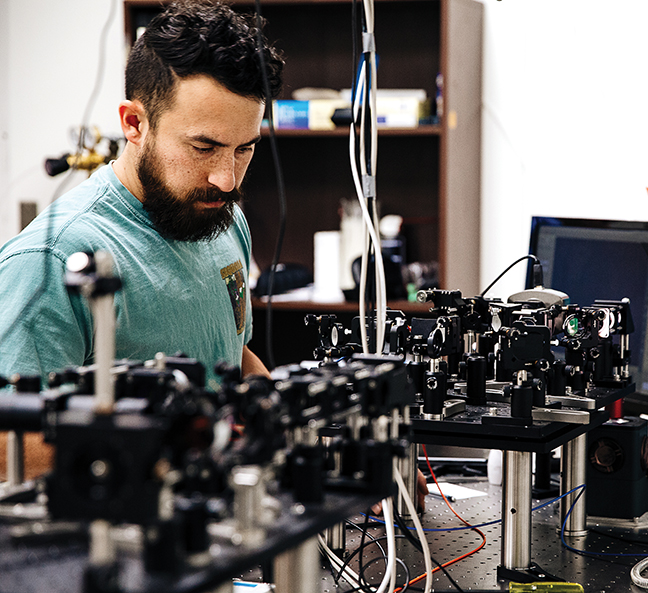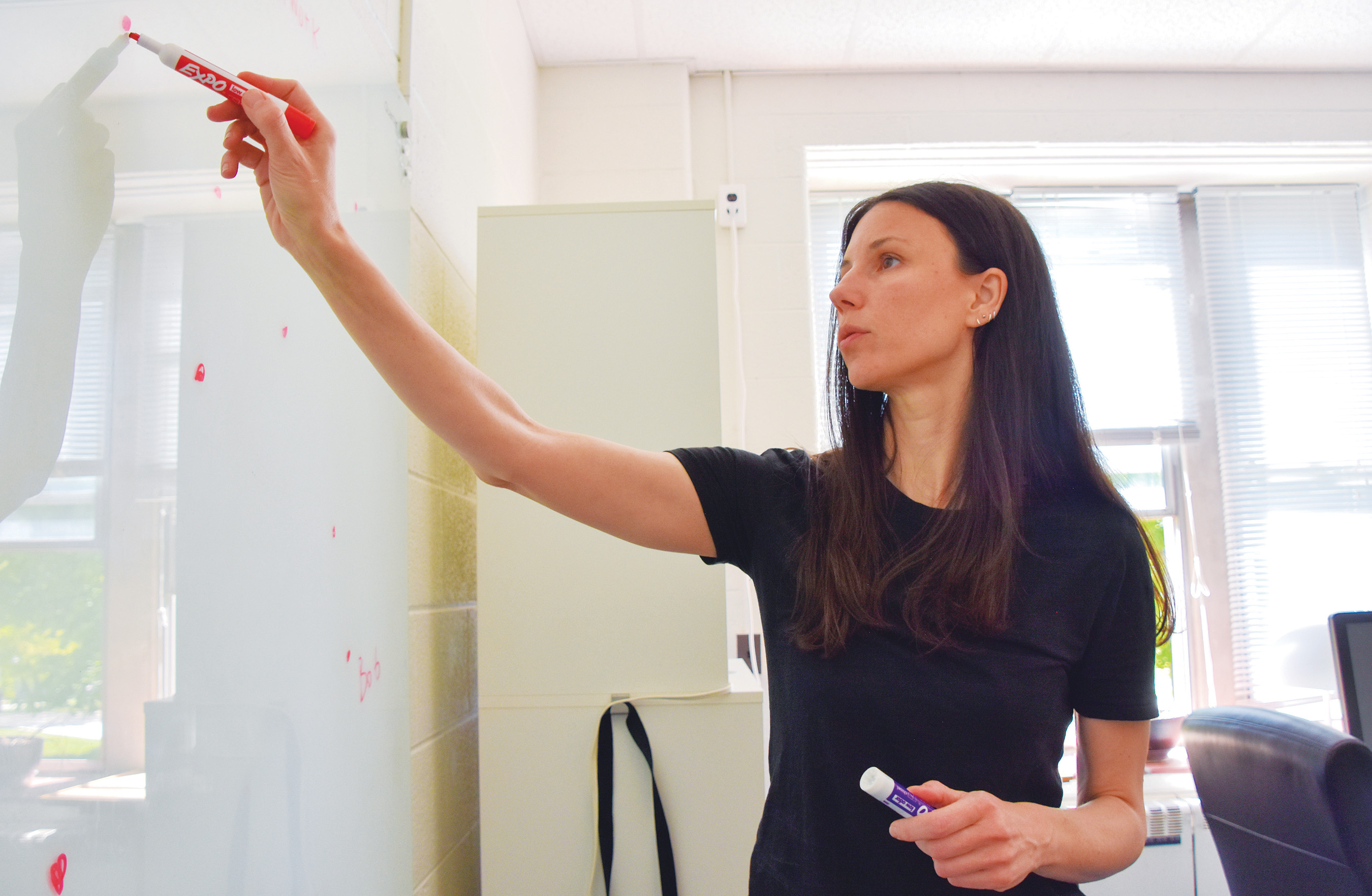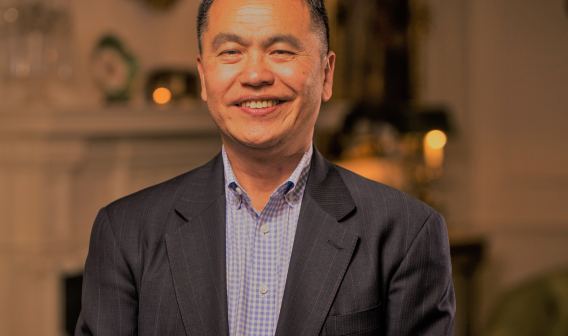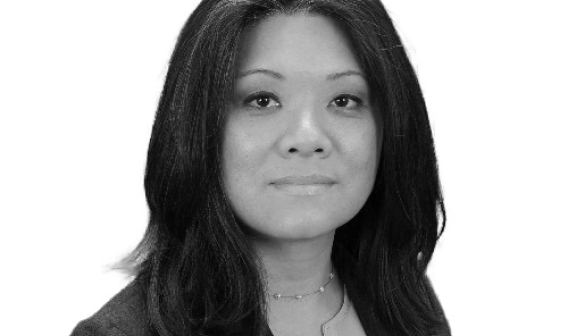Virginia's Quantum Phase Transition
Virginia is positioned to be a leader in quantum research and engineering as the industry matures
Once entirely theoretical, the quantum sciences have slowly but surely become applied sciences, opening the door for technologies that take advantage of our improved understanding of physics at the smallest imaginable scales — even if things can be difficult to wrap your head around at first.
“There’s no explanation that’s both intuitive and accurate,” said Dr. Sophia Economou, a quantum physicist at Virginia Tech and director of the Virginia Tech Center for Quantum Information Science and Engineering (VTQ). “The rules and the way matter and light behave quantum mechanically are very different than our everyday experience.”
“These quantum properties usually only emerge when dealing with things on the scale of single atoms or extremely cold temperatures — colder than the temperature of space itself in some cases,” said Dr. Patrick Vora, director of the Quantum Science and Engineering Center (QSEC) at George Mason University. “The properties are strange, non-intuitive, and beautiful.”
The quantum frontier is attracting serious investment by private industry and the federal government. In 2018, the National Quantum Initiative authorized $1.2 billion in federal support and has since increased that amount to $3.75 billion, while some states are making large quantum investments of their own.
While Virginia is still ramping up its quantum investment, the Commonwealth is well positioned to be a leader in quantum research and engineering for years to come. The federal government, which will be a major employer and buyer in quantum technologies, has a large regional presence, existing industry in related fields is poised to support quantum, and Virginia’s universities are conducting forward-looking theoretical and experimental quantum research and anticipating the educational needs of a growing quantum workforce.
The Commonwealth is already a locus of computing, data science, and physics research. For example, in late 2022, the Thomas Jefferson National Accelerator Facility in Newport News was among the institutions jointly awarded a $35 million grant from the U.S. Department of Energy. The funds will help apply some of the fastest, most advanced classical computers in the world to solve problems in nuclear physics.
In 2022, Connected DMV, an organization that promotes development in Washington, D.C., and the surrounding area, received a $600,000 grant from the U.S. Department of Commerce’s Economic Development Administration to establish its Life Sciences and Healthcare Quantum Innovation Hub. One goal is to support the middle ground of technological development between fundamental research and commercial viability, accelerating the growth of quantum technologies.
The Hub is intentionally cross-sector and cross-jurisdictional, and the first year has focused on “working with a group of companies in the life science space to find a framework for what that collaboration would look like,” said Connected DMV Chief Information Officer George Thomas.
Avenues of quantum research can be broadly grouped into four main areas: computing, sensing, materials, and communications. Each of these might have distinct applications in different industries, which makes collaborative, domain-specific hubs appealing.
In the life sciences and health care, for example, quantum computers could help model complex chemical reactions, accelerating pharmaceutical development. Quantum-sensing research could lead to highly sensitive, non-invasive medical imaging techniques. Quantum materials might have some yet-to-be-discovered properties that are useful to medicine. And from a communications standpoint, securely managing health care data will be a quantum problem. Quantum hubs focused on national defense, logistics, finance, or climate science might all have slightly different problems and priorities.
Universities will have a leading role to play in any collaboration. George Mason University and Virginia Tech boast quantum centers that foster collaboration across academic disciplines and quantum outreach to their students.
There’s no explanation that’s both intuitive and accurate. The rules and the way matter and light behave quantum mechanically are very different than our everyday experience.
Building a Quantum Future at George Mason
“Something that gets lost with these new technologies is you’ve got to make them out of something,” Vora said.
Vora’s lab works with many diverse types of materials, with a focus on two-dimensional, layered materials. The use of layered materials provides new pathways to realize devices with on-demand quantum properties. For example, graphene is a one-atom-thick sheet of carbon that holds promising electronic properties but lacks superconductivity. However, if two layers are stacked and misaligned by a “magic angle” at extremely cold temperatures, they become a superconductor. Combining different types of layered materials and misorienting them can therefore lead to new quantum behaviors. “It’s allowing us to create new states of matter with potential technological utility,” said Vora.
Researchers at Mason’s QSEC are also working on identifying problems that might be solvable with existing rudimentary quantum computers and those that are theoretically possible on a dream quantum computer. On the sensing front, George Mason physicist Karen Sauer has produced one of the world’s most sensitive quantum magnetometers. Devices like this can sense the signature magnetic fields of varied materials with potential screening applications in biomedicine, security, and geological surveys, or in navigation as an alternative to GPS.
QSEC is taking a leading role in building the quantum workforce with programs for students and teachers from elementary school to graduate school. A survey of quantum employers found a need not just for doctoral degrees, but a wide range
of traditional skills with some quantum awareness and background — the sort of knowledge that might come from a master’s degree, a minor, or in some cases, quantum coursework designed for non-technical, non-scientific workers. They have also surveyed STEM undergraduates to find out what they know about quantum and quantum careers. In response, Mason is updating curricula, adding a quantum concentration for the master’s degree in physics, and broadening outreach programs.
Real-World Applications for Quantum Information Science at Virginia Tech
“We have a lot of expertise in quantum computing, which is a broad area in itself,” Economou said.
Quantum computers won’t simply be faster than classical computers, but function in an entirely different way using new operations with an alternative concept of circuitry. Entirely new categories of problems will become solvable, but other aspects of computing will need to be reconsidered to make these machines viable, including the hardware, algorithms, and error correction.
Economou highlights two real-world applications driving the field. Quantum computers are theoretically capable of breaking the sorts of cryptography commonly used today for all sorts of messages and, more critically, for financial transactions. Efforts are already underway to safeguard information against the future threat of quantum code breaking. And chemical reaction simulations could change drug development and lead to other novel chemicals, materials, or ways of making them.
Quantum communications and quantum networks make up another area of focus at Virginia Tech. VTQ researchers span this broad subfield, with research ranging from physical platforms to the distribution of entanglement and performance of the network to cryptographic protocols. This research direction is supported by Virginia’s Commonwealth Cyber Initiative, while other university research partners include IBM and the Oak Ridge National Laboratory.
The Office of Research and Innovation at Virginia Tech has named quantum as one of its four key strategic priorities. Recent quantum investments from the university include a dedicated space for VTQ and a new electron-beam lithography machine.
The properties are strange, non-intuitive, and beautiful.
In addition to the important basic quantum research and exploratory work at Virginia Tech, the university is a key technical training ground. The school introduced a minor in quantum information science and engineering in 2022, one of the first in the country. The program was designed to be flexible and interdisciplinary, anticipating that opportunities await graduates across industry, government, and academia. “We tried to design the degree we would have wanted,” said Economou. Virginia Tech also runs a summer camp for high school students, now in its third year.
For the fall 2023 semester, Virginia Tech welcomed five new faculty members across different disciplines, all of whom will work on quantum information science. The center has grown to one of the largest theoretical quantum groups in the country. “As a director, I’m very excited that this is happening,” Economou said. “We’re a very young, interdisciplinary, dynamic center.”







